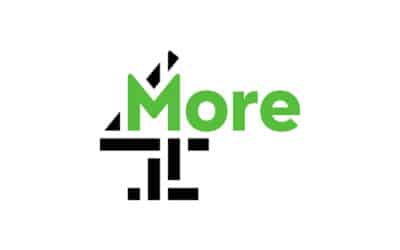As Manchester has always been at the forefront of technological advancement, Greg Hudson, chief technology officer at communications and cloud provider M247, sets out why advancing the city’s digital connectivity is critical for future growth.
Manchester has always been at the forefront of technological advancement. Home to the first ever stored program computer, invented at The University of Manchester in 1948, and ‘the birthplace of nuclear physics’, where the first atom was split, Mancunian technologists have always been ahead of the game when it comes to innovation.
Fast forward to today, and the city has seen significant investments in its digital infrastructure. Manchester is now as one of the UK’s ‘top digital tech cities’, home to a wide ecosystem of tech companies, ranging from the large multi-nationals to the small innovators, on the beginning of their journey.
With start-ups in the region raking in a colossal £532 million collective investment in 2022 – the second highest in the UK after London – it’s safe to say Manchester has maintained its status as a hub for tech enthusiasts.
A city lagging behind
As the tech sector here continues to grow, and some of the top tech companies eye Manchester as a city to base their operations, the demand for high-speed internet services has also increased.
Yet, despite this growth, advancement in this area has been slow. The arrival of fibre to the premises (FTTP) – a direct connection to the local internet exchange via fibre optic cables – promised to deliver faster, more reliable internet speeds to businesses compared to its predecessors.
The rollout of FTTP has been slow, however, particularly in less central areas. Today, towns and cities making up almost half the country are still waiting on FTTP to become available to them – many of which are in the Greater Manchester area – meaning many businesses here are missing out (and grappling with slow, outdated connectivity in the meantime).
It’s part of a wider issue. The UK, in general, is lagging behind when it comes to connectivity. For tasks and devices used daily by businesses, such as phone lines, alarm systems, and even dial-up internet, a surprising majority (84%) are still reliant on the now outdated, shared Public Switched Telephone Network (PSTN).
The problem with these slow, shared connections – supplied via a public infrastructure of wired lines, street cabinets and exchanges – is that businesses must constantly compete for available bandwidth, especially now, as the demand for internet in Manchester continues to grow. And unfortunately, other options, such as 4G connectivity, have proven to be just as unreliable in their performance.
Connectivity is now non-negotiable, and mission-critical, for businesses, and the disruption posed when these network options go down — paired with the slow rollout of FTTP — has left businesses searching for alternative high-speed internet solutions.
Radio to the rescue
Leased fibre lines – that is, dedicated, private connections supplied to individual subscribers – has offered one of these solutions to businesses. They provide faster connection speeds than a standard service, via features such as Multiprotocol Label Switching (MPLS), which ensure network traffic is routed efficiently and reliably.
Leased wireless lines, however, are emerging as the big winner for businesses in Manchester and are arguably a far more accessible option. These lines use radio technology to provide one of the most reliable forms of wireless connectivity to businesses, as data is carried through the sky between two points via aerial signal – making it extremely resilient. This is achieved though high-rise Point of Presence (PoP) sites that ensure maximum connectivity coverage for high density urban areas.
Unlike fibre, which relies on extensive infrastructure, radio internet tends to be less impacted by physical obstacles such as roadwork disruptions. As a result, it can be set up quickly, scaled effectively, and tends to involve less setup costs than laying fibre cables, making it an attractive option for businesses (even when on a budget).
Today, radio connectivity is already flowing freely in the Manchester skyline. It’s invisible to the human eye, and most aren’t even aware that it’s there! But for those businesses that have adopted radio connectivity, the fast speeds, reliable connections, and reduced downtime it offers are certainly delivering a visible impact.
Manchester is on a growth trajectory to becoming one of the UK’s top tech hubs, but relying on outdated, shared network resources won’t be enough to take it there.
As FTTP rollouts continue to lag, and outdated, public networks struggle to withstand businesses’ increasing demands, more and more will turn to different forms of connectivity, such as radio, to access the speed, flexibility, and reliability they need to succeed. And looking to the future, advanced connectivity is only going to become more integral to businesses, particularly as these various technologies – from wireless to cellular – continue to integrate and become embedded in our everyday devices.
The question is: when will your business take the leap, and start looking at the sky as the limit?








